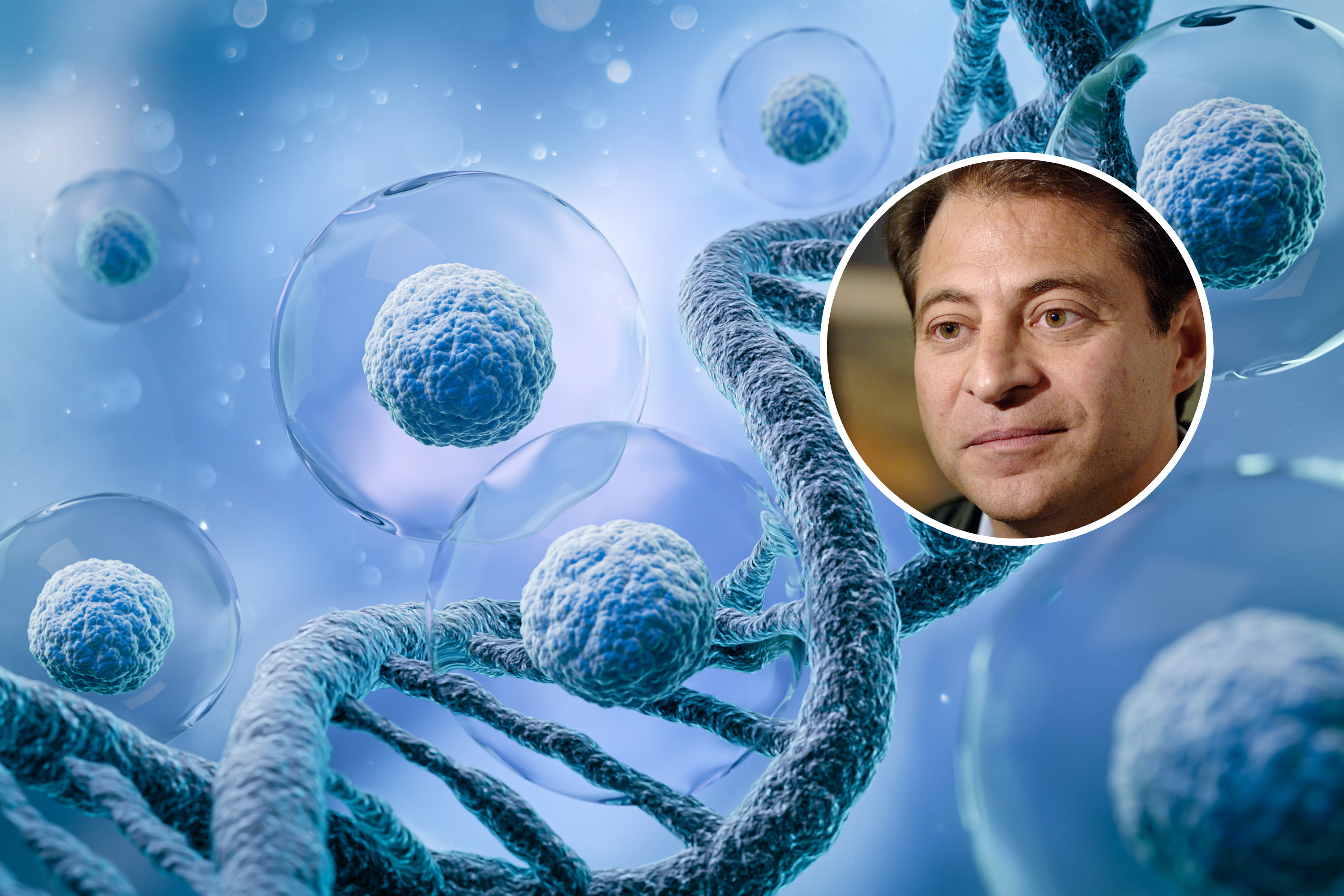For most of human history, aging has been seen as an inevitable consequence of life. But thanks to an explosion of medical and technological breakthroughs in recent decades, some scientists are beginning to consider aging as a disease that we can actually treat, or at least delay.
One such scientist is Peter Diamandis, a medical doctor and serial entrepreneur with a portfolio of more than 20 companies.
“As an entrepreneur, my early passions were in space,” Diamandis, who was nominated as one of the World’s 50 Greatest Leaders by Fortune in 2014, told Newsweek. “But in the last decade, my passion has been about what I consider the most important revolution of our time, which is what I refer to as the healthspan revolution.”
But what is healthspan, and how does it compare to the traditional concept of lifespan?
“Your lifespan is how long you live, how long your heart is ticking,” Diamandis said. “But healthspan is how long you feel healthy, vibrant and have the ability to enjoy life. And while we’ve extended lifespan, we haven’t fully extended healthspan yet.”
Among Diamandis’ many founded companies is the non-profit XPRIZE, which designs and hosts public competitions intended to encourage technological development in specific areas. In 2023, the company announced its largest XPRIZE to date: a $101 million prize offered to a team that can develop and test therapeutics capable of extending our healthspan by restoring and maintaining function in our cognition, immune systems and muscles as we age.
Diamandis is hopefully that these technologies will begin to be available within the next seven years. But the question is, what can we do now to live a longer, healthier life?
“I talk about something called longevity mindset,” Diamandis said. “And longevity mindset is having enough confidence that these breakthroughs are coming our way. And it’s your job to remain healthy to intercept these breakthroughs coming our way.”
To support this longevity mindset, we need to adopt a longevity lifestyle.
“Genetics only account for something between 7 [percent] and 20 percent of our longevity,” Diamandis said. “The majority is your lifestyle.”
So what does a longevity expert like Diamandis do every day to optimize his health and support this longevity mindset?
- Exercise: “The number one thing for me is exercise. I’m in the gym lifting weights at least four days a week, I’m on my Technogym bike getting 45 minutes of zone 2 cardio three to four times a week. I’ve added 10 pounds of muscle mass in the last year. You know, I’m at the best health that I’ve been and I’m 62.
- Sleep: “Number two is sleep. I am monomaniacal about getting eight hours of sleep. And now, I’m in bed by 9:30 because I wake up at 5:30 a.m.
- Diet: “The next thing is diet. There are very few absolutes [in diet] but there are some: sugar is a poison. The body never evolved to eat that much sugar. So I minimize my sugar, I’m wearing a continuous glucose monitor and I’m measuring it constantly. And if I’m going to eat something sweet I will eat it with intention. I will savor it, rather than just shoveling it down. I also focus on taking in 150 grams of protein; I weigh 150 pounds so it’s a gram per pound to maintain and grow muscle.”
- Positive mindset: “A large study published in the Proceedings of the National Academy of Science [in 2019] said that optimists live 15 percent longer than pessimists. [So] I don’t watch the news. You couldn’t pay me to watch the crisis news network TV.”
Diamandis has published two bestselling books on this longevity lifestyle—Life Force, in collaboration with Tony Robbins and Robert Hariri, and Longevity: Your Practical Playbook, of which you can find an shortened digest on his website.
Is there a health problem that’s worrying you? Do you have a question about longevity? Let us know via [email protected]. We can ask experts for advice, and your story could be featured on Newsweek.
Uncommon Knowledge
Newsweek is committed to challenging conventional wisdom and finding connections in the search for common ground.
Newsweek is committed to challenging conventional wisdom and finding connections in the search for common ground.

Rachel Carter is a health and wellness expert dedicated to helping readers lead healthier lives. With a background in nutrition, she offers evidence-based advice on fitness, nutrition, and mental well-being.






